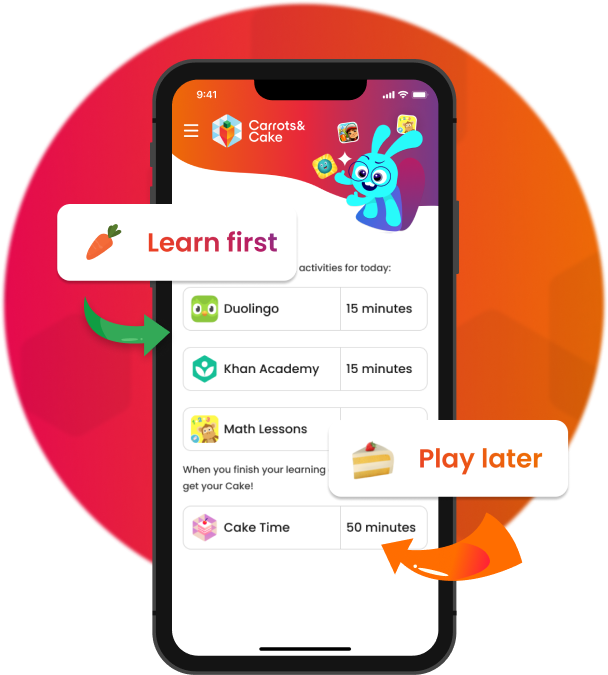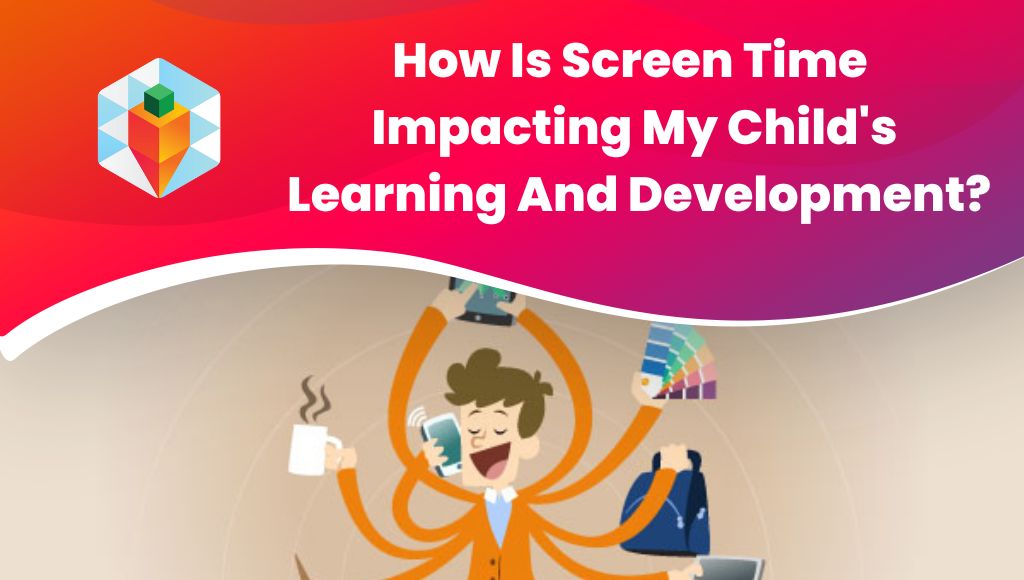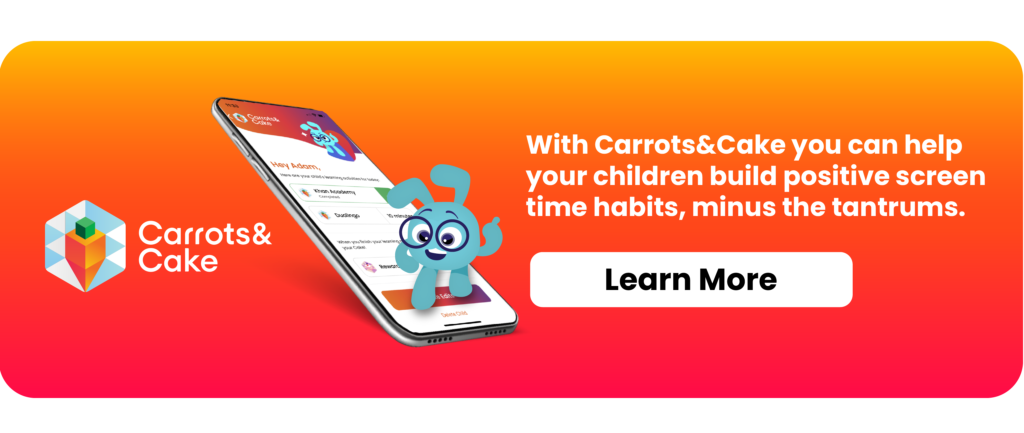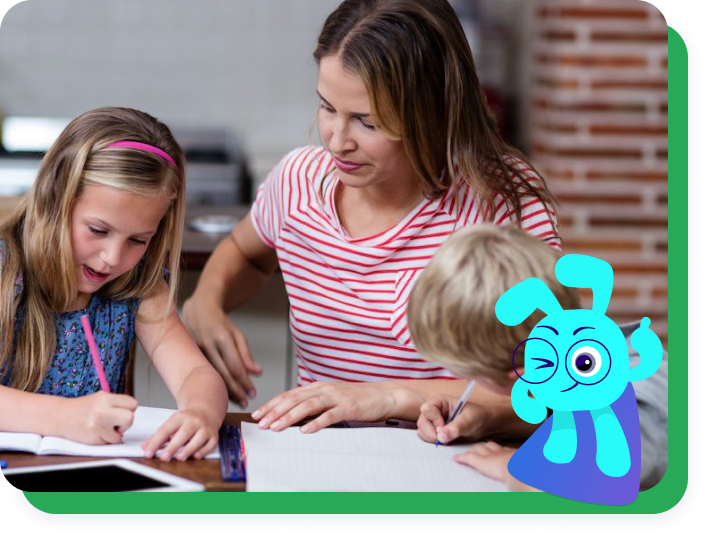


Screen time can be considered both positive and negative towards learning and development, depending on who you ask and how much screen time they think is “normal.”

Digital technology offers kids active learning experiences like never before. While the benefits can be huge, the internet isn’t a platform where children can have unrestrained access.
To determine what exactly a healthy amount of screen time is, first consider your child's age.
For example, screen time is more detrimental to children below the age of two.
But even when kids are older than two, the content they consume during screen time really determines if the impact will be positive or negative and whether it leads to learning and development.
Screen time and its role in child development is hotly debated. Almost everyone has a take on the topic.
That’s why Carrots&Cake pulled together some of the facts to help you understand this better.
Screen time can displace children from the real world and the skills they need to learn at this formative stage of life.
The displacement hypothesis states that screen time negatively affects mental well-being because it displaces time to participate in healthier activities, such as physical exercise.
Here are some facts that support this hypothesis:
1. Television has been shown to have a negative impact on reading skills in children under the age of one.
2. Time spent with screen media causes children to spend less time with physical toys and social interactions; these children have poorer language skills and cognitive development
Most parents think there isn’t a link between knowledge, development, learning, and screen time.
That’s not true.

For instance, shooter games — the ultra-violent ones that parents hate — can improve a child’s spatial skills! These skills include generating, retaining, retrieving, and transforming well-structured visual images.
This includes being able to do mental rotations in your head, visualizing objects from different perspectives, learning special skills and abilities, and coordinating how to use different spaces in relation to other spaces (C. S. Green & Bavelier, 2012).
Uttal et al., 2013 found that players of shooter games show faster and more accurate attention allocation.
Don’t worry though; other games have immense benefits too!
Adachi & Willoughby, 2013 determined that children who play strategic video games like roleplaying games (e.g., World of Warcraft & Star Wars: The Old Republic) have excellent problem-solving skills.
Video games generally put the player in an immercement state. This is sometimes referred to as a flow state or being in the zone.
This frame of mind reduces experiences such as boredom, depression, and anxiety (Vogel et al., 2018).
That doesn’t mean you should let kids run wild with \video games whenever they want.
Educational games have incredible benefits as well.
In fact, after a child reaches two and a half years old, educational media are effective in enhancing academic knowledge and skills.
Mobile apps are particularly effective in enhancing literacy and training math skills.
Screen time can be addictive for both children and adults.
This addictive effect results from the instant gratification received from playing video games and scrolling online.
These activities can cause children to feel agitated and throw tantrums when they are asked to stop engaging in screen time.
Just like an alcoholic gets upset when the bartender cuts them off, kids react badly when the thing that makes them happy is taken away.
The type of screen media a child consumes also impacts behavior.
If a child plays fast-paced games, it can lead to withdrawal symptoms when the game is taken away. Educational apps don’t have this effect because they stimulate children differently.
It is important to point out that violent entertainment media is often associated with impulsive and aggressive behavior, which may cause problems at home, in school, and with friends.
Managing screen time and children can be difficult,.
Here are tips to help you with your journey:
Less television means more time spent reading, playing outside, and having quality family time.
Minimize screen time exposure for children in general.
Dr. Clifford Sussman, a child psychologist and psychiatrist, suggests the following screen time rules:
For younger kids: no more than 30 minutes per session
Also Read: Top 10 Educational Apps for Kids
Struggling to strike a healthy balance in your children's screen time? We sat down with Dr. Clifford Sussman to explore effective strategies. This is what he shared with us:
"There are very simple things parents can do. It's very important that parents establish environmental cues in the home. They can change the cues so that instead of kids being surrounded by devices all the time, they go to a separate place to use their devices than they do for other activities. Parents can introduce many real-life everyday structure activities that the kids have to do at a certain time to really fill up their schedule with off-screen activities. Parents can set clear limits to the blocks of time that kids can use the screen so they're not bingeing, and they can have very consistent and reasonable consequences when they violate those limits. Finally, parents can use applications to help. Carrots&Cake, for example, is designed to help children take more agency in their own self-regulation."
With Carrots&Cake, you can help your children build positive screen time habits, minus the tantrums. Click here to learn more!







